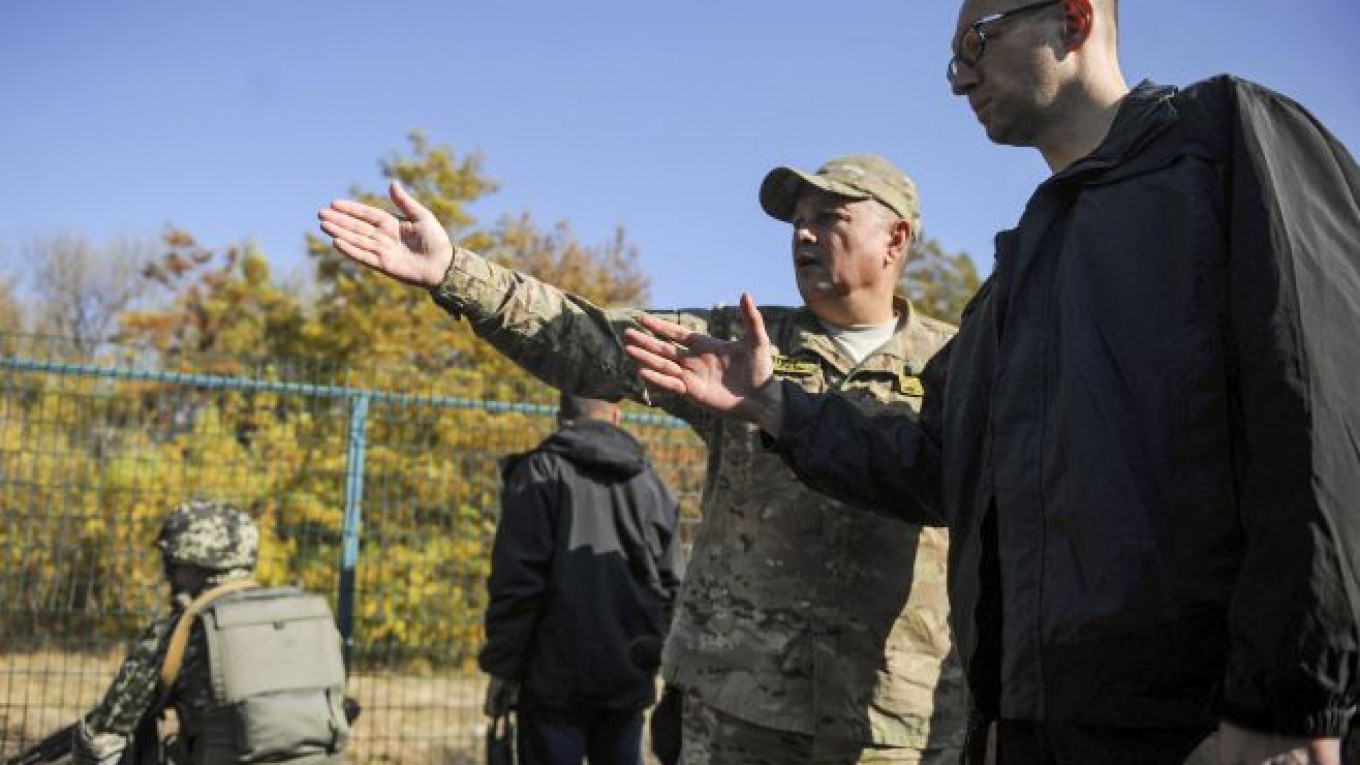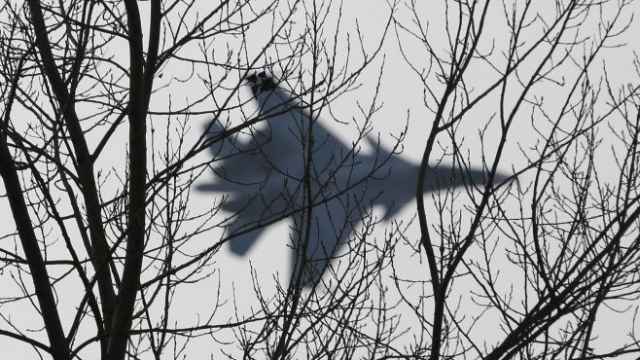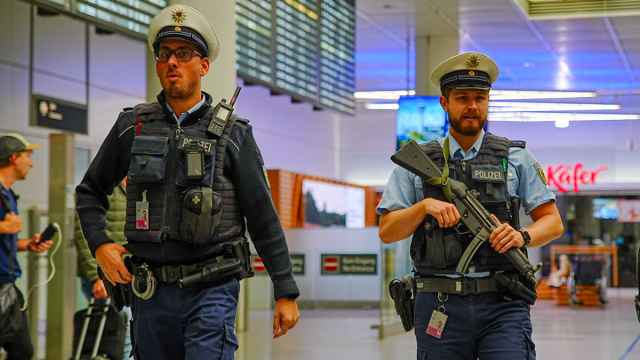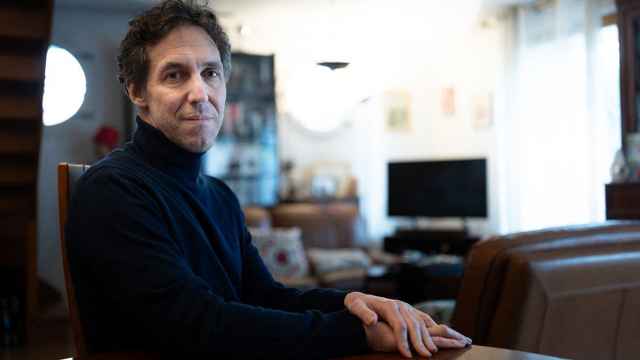Russia's border with eastern Ukraine has softened to the point of becoming completely porous, while an internal Ukrainian dividing line hardens, NATO's top general said Monday, cautioning about the risk of another "frozen conflict."
U.S. Air Force General Philip Breedlove, NATO's supreme allied commander in Europe, said he believed there were about 250 to 300 Russian troops inside eastern Ukraine helping train and equip Russian-backed forces.
Some seven Russian battalion task groups are across the international border in Russia, Breedlove said, adding that the composition of those forces made them difficult to quantify.
The international border had faded from view as attention shifts to the demarcation line separating pro-Russian militias and Ukrainian forces.
"We have an international border. That is the border between Russia and Ukraine. That should be the border that we're trying to close, the border that we're trying to enforce," he said.
"The focus seems to be now on the control of this line of demarcation and patrolling the line of demarcation."
Asked about his concerns, Breedlove said: "I'm concerned that the conditions are there that could create a frozen conflict."
Breedlove's comments came after elections in breakaway regions of Ukraine over the weekend that further deepened the standoff with Russia over the future of the former Soviet state.
Breedlove said he had no indications Russia has moved tactical nuclear weapons into Crimea, as reported by one U.S. publication. He said Russia has publicly spoken about stationing aircraft there in the future that could carry out a full range of missions, but acknowledged: "I have no indication of what they're actually going to do."
NATO leaders have said the alliance has no plans to intervene militarily in Ukraine, which is not a NATO member. But they have beefed up NATO's eastern defenses to reassure nervous allies and NATO has suspended practical cooperation with Russia.
A Message from The Moscow Times:
Dear readers,
We are facing unprecedented challenges. Russia's Prosecutor General's Office has designated The Moscow Times as an "undesirable" organization, criminalizing our work and putting our staff at risk of prosecution. This follows our earlier unjust labeling as a "foreign agent."
These actions are direct attempts to silence independent journalism in Russia. The authorities claim our work "discredits the decisions of the Russian leadership." We see things differently: we strive to provide accurate, unbiased reporting on Russia.
We, the journalists of The Moscow Times, refuse to be silenced. But to continue our work, we need your help.
Your support, no matter how small, makes a world of difference. If you can, please support us monthly starting from just $2. It's quick to set up, and every contribution makes a significant impact.
By supporting The Moscow Times, you're defending open, independent journalism in the face of repression. Thank you for standing with us.
Remind me later.






